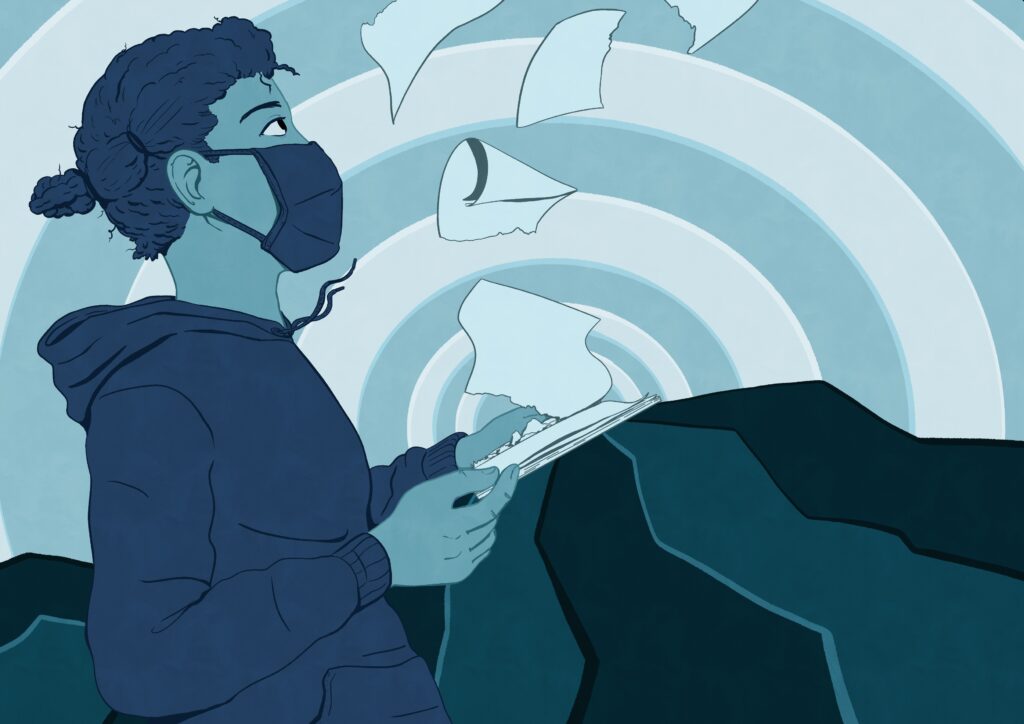“What about mental health?” by Alma Jbeili
Do you ever look back at last year and ask yourselves how life back then could be so different? It’s almost like life has turned into a comic book, so surreal and alien have things become. A few months ago, we were living life as normal. Now we are still questioning whether the word “normal” can ever be used again. These past few months have certainly been difficult for everybody, and whether we acknowledge this or not, it has affected our mental health.
There has been a steep decline in mental health diagnosis and treatments over these past few months as the government tries to battle with Covid-19. Soon enough, though, they will have to tackle this too, and it could be almost as big a battle.
We had the pleasure of interviewing Professor Dawn Edge at Manchester University who highlighted the importance of the preservation of our mental health. However, she noted that the government has done little to support those with mental health problems and hasn’t advertised beneficial practices to help the public cope with the pandemic. During the interview, Professor Edge mentioned that with this government response, deterioration of mental health in the country is “expected collateral damage”. This damage could be worse than it seems. An Institute for Fiscal Studies (IFS) analysis of data from the Understanding Society study found that, taking account of pre-pandemic data, mental health has worsened substantially as a result of the pandemic, and this has impacted young adults and women the most.

Professor Edge also expressed her worries surrounding available treatments for those who are already suffering from mental illnesses and depression. She said that these treatments could “save lives” but asked “why isn’t this of any importance to the government?” Online therapies are now being used; however, “in cases such as family therapies, the ability to engage and coordinate with the families is very difficult”. This has widespread implications as, while family has been the main rock for many people to hold onto during this epidemic, this might not be the case for everyone.
Nevertheless, Professor Edge encouraged us to always maintain a positive outlook when facing challenges in life and described this as an opportunity to discover new ways of therapeutic treatments, as well as potentially reaching more people online who are in need of help.
Something I learned from this interview is that mental health support is not limited to those with visible psychological problems, as problems with mental health can occur in anyone and is a normal part of our lives. It is how we deal with it that matters. Professor Edge has encouraged me to release my emotions, whether through journal logs or in conversations, as that is always better than keeping it bottled up inside of you.
As a rule, we should always take care of our mental health and there are many ways to do this.
Some tips I would recommend are:
- Listen to some guided meditations as they can really help — some are as short as five minutes. The Honest Guys is a YouTube channel that I certainly recommend.
- Exercise. Simply a brisk walk around a park or some yoga at home can help.
- Eat healthily. Your brain needs the right nutrients as much as your body does.
- Have a good night’s sleep. I am sure you have heard this one many times, but it actually works.
And remember whatever you are going through, there are people you can talk to.
You can:
– call Samaritans on 116 123 (UK-wide)
– text SHOUT to 85258 (UK-wide)
– call C.A.L.L. on 0800 132 737 (Wales only)
These services are for everyone. They are anonymous and free, and they won’t ever judge you.

